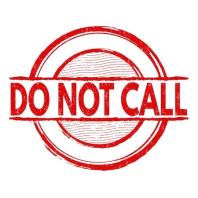The National Do Not Call Registry was created in 2003 and has been widely used ever since. While most people are aware that the Do Not Call Registry (DNCR) exists, they aren’t quite sure what it does or what it prevents. Many people do not understand why they continue to receive unwanted calls even though they are on the list, and are unsure which types of communications violate the law and which do not.
The DNCR is not a list of people who never want to receive an unsolicited phone call. Instead, the DNCR was created as a way for consumers to limit the amount of marketing and sales calls that they receive, and also as a way to maximize compliance with the Telephone Consumer Protection Act (TCPA).
In order to register for the DNCR, consumers need to either go online and register at www.DoNotCall.gov, or they may call 1-888-382-1222 from the number they want to register.
Once a person is listed on the DNCR, advertisers have up to 31 days to remove the number from their list and stop calling. As of 2008, registration is permanent.
For people who have cellular or mobile phones, the DNCR may not be very useful. Federal law already prohibits most unsolicited sales calls or text messages to personal cell phones if the owner has not expressly opted to receive messages. However, owners of cellphone numbers are still free to register if they wish.
Numbers on the DNCR cannot be contacted by telemarketers. This does not mean that they cannot be contacted by debt collectors, survey takers, political campaigns, or other entities that may have been given permission to contact that number.
Additionally, the DNCR applies only to personal numbers, not to business lines. Business phone numbers can receive several kinds of marketing or advertising calls each day without violating the law.
When a company violates the DNCR, consumers can make a complaint with either the Federal Communications Commission (FCC) or the Federal Trade Commission (FTC). The consumer must file a report detailing the type of phone that was used, when the call occurred, the company that called, the goods and services being offered, and whether the caller claimed to be contacting the consumer based on a particular exemption to the DNCR. The FCC or FTC may investigate the claim, and could fine or otherwise penalize the offending company.
Companies that violate the DNCR often violate other types of consumer protection laws, like the TCPA or the Fair Debt Collections Practices Act (FDCPA). If you think that an advertiser or marketer is violating the DNCR or other consumer protection statute, you may be able to file a lawsuit seeking damages for your time and trouble.

If you are receiving calls from creditors who refuse to leave you alone, then you may have grounds for a lawsuit and be awarded monetary damages. At the law firm of Fitzgerald & Campbell, APLC, our attorneys have extensive knowledge of the DNCR, TCPA and FDCPA requirements as well as decades of experience representing clients in all types of consumer defense cases.
Call us today for a free consultation at (844) 431-3851, or email us at info@debtorprotectors.com

